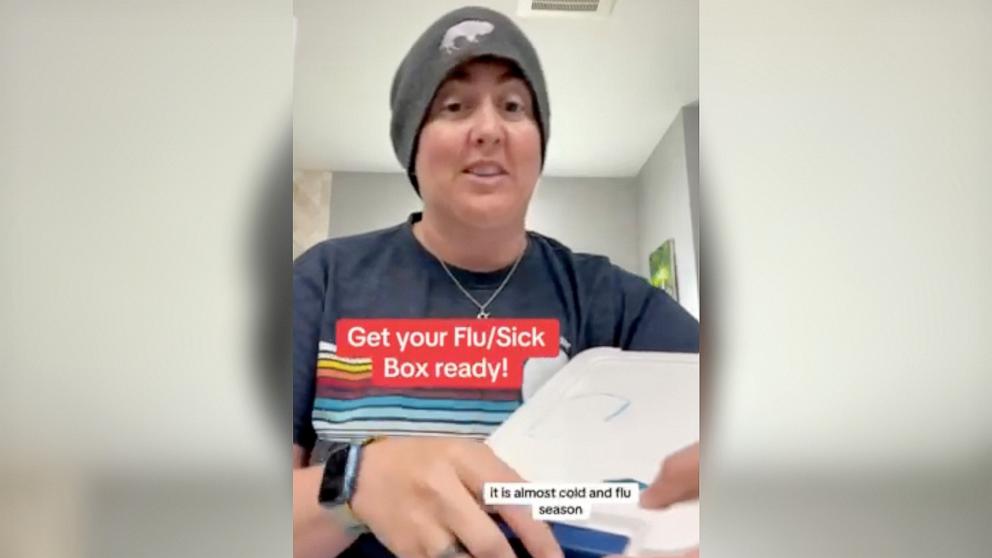


A second surge of the flu is leading to school closures or a switch to remote classes in at least four states.
School districts in Louisiana, Missouri, Tennessee and Texas have announced closures to allow students, teachers and staff to recover as attendance dips amid high levels of respiratory illnesses.
According to the Centers for Disease Control and Prevention, flu is at very high or high levels in at least 40 states nationwide.
The spike comes after cases of RSV and influenza increased before the holiday season in December 2024.
Flu season in the U.S. typically occurs in the fall and winter, according to the CDC. The CDC also notes that those at higher risk of developing complications from influenza include people 65 years and older, those with chronic medical conditions and/or obesity, pregnant women, and children under the age of 5.
According to the CDC, influenza is "spread mainly by tiny droplets made when people with flu cough, sneeze, or talk."
"These droplets can land in the mouths or noses of people who are nearby," the agency states. "Less often, a person might get flu by touching a surface or object that has flu virus on it and then touching their own mouth, nose or possibly their eyes."
The CDC reports at least 20 million have fallen ill with the flu so far this season, leading to 250,000 hospitalizations and 11,000 deaths.
Doctors like Dr. Martin Topiel, an infection prevention officer at Virtua Health in New Jersey, also say it's not too late to get a flu vaccine even though the flu season is in full swing.
"The way the season is extending at this point and with the severity, we would recommend everyone who hasn't had a vaccination to go out and try to get protected," Topiel told ABC News.
Here's how to prepare you and your family for the flu.
3-year-old who spent over a month in hospital battling flu, RSV gets wish to see family againThe flu is caused by various influenza viruses that impact the respiratory system. For the 2024-2025 flu season, the CDC lists the main groups of influenza viruses in the U.S., for which influenza vaccines are formulated to protect against, as "Type A and B viruses, an A(HIN1) virus, an A(H3N2) virus, and a B/Victoria lineage virus."
Symptoms of the flu can vary but per the CDC, they may include fever or chills, a cough, sore throat, runny or stuffy nose, muscle or body aches, headaches, fatigue, vomiting or diarrhea. The latter two symptoms are more common among children than adults with the flu.
What to know about 'Teflon flu' amid a rise in cases in the USIndividuals with the flu can spread the virus to others. According to the CDC, influenza viruses can be detected in infected persons beginning one day before symptoms develop and up to five to seven days after becoming sick. The first three days of an infection tend to be the most contagious period.
The CDC recommends a flu vaccine for nearly everyone 6 months and older in the U.S. every flu season, with rare exceptions. These include those with severe or life-threatening allergies to any ingredient in a flu vaccine (other than egg proteins). It is important to talk to your healthcare provider if you have any concerns or questions about the flu vaccine.
The flu is most active between the fall and winter months. During the 2023 to 2024 flu season, CDC reports showed that influenza activity started to increase in early November and peaked in late December 2023. Activity remained stable at high levels through February 2024 and then declined to inter-seasonal levels in May 2024.
Dr. Meghan Martin, a pediatric emergency medicine physician and a mom, shared in a TikTok post what she keeps on hand at home to stay prepared for flu season.
Her top items include:
Disposable vomit bags.
Medications for fever and/or cough suppression. Please talk to your healthcare provider to see if these medications would be appropriate for you to take.
Digital thermometer.
A portable pulse oximeter to measure heart rate and oxygenation.
Packs of electrolyte powder.
Saline nasal mist.
A squeeze bottle kit for over-the-counter saline solutions.
A saline inhaler.
Nasal saline drops with a suction bulb.
Dr. Jennifer Miao, a board-certified cardiologist, critical care fellow at Yale School of Medicine/YNHH, and a fellow in the ABC medical news unit, contributed to this report.